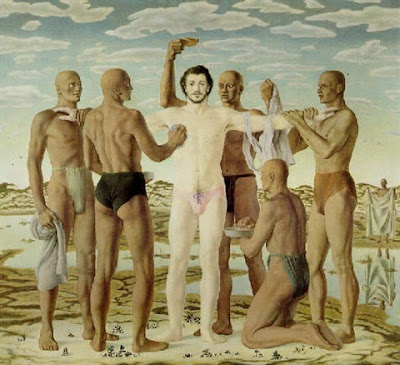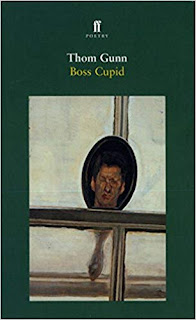Burnings, Ocean Vuong (update)
 Like many (USA) poets, Ocean Vuong has published quite widely within internet journals. (His blog contains a comprehensive list of these places). Two points ought to be made in the light of this: 70% of his chapbook, Burnings, can be read via the net; Burnings has been well-edited, such that is contains a high quality selection of his electronically published work. And putting those two points together, internet publishing can easily dilute poetic achievement (because of the lack of attention to type-setting and weak critical standards by editors with insufficient literary experiences) and nothing can replace the pleasure of a well-structured volume of poetry enjoyed at length. And that is what Burnings offers. It is a chapbook with structural integrity (and judicious editing) which affords as much insight and intelligence as a first book.
Like many (USA) poets, Ocean Vuong has published quite widely within internet journals. (His blog contains a comprehensive list of these places). Two points ought to be made in the light of this: 70% of his chapbook, Burnings, can be read via the net; Burnings has been well-edited, such that is contains a high quality selection of his electronically published work. And putting those two points together, internet publishing can easily dilute poetic achievement (because of the lack of attention to type-setting and weak critical standards by editors with insufficient literary experiences) and nothing can replace the pleasure of a well-structured volume of poetry enjoyed at length. And that is what Burnings offers. It is a chapbook with structural integrity (and judicious editing) which affords as much insight and intelligence as a first book.Burnings is an effective title for this volume. (More gutsy and descriptive than the original Arrival by Fire). The whole consists of a thoughtful Ars Poetica followed by two sections that show a sensitive and sensual poet at work. Each section contains 12 poems that react like macrocosm and microcosm. Section (i) seeks to relate the poet to a historical, geographical, cultural context. Literally, a matrix, for the wider world is experienced through the Mother—mother, grandmother, the subconscious Anima. Section (ii) shows the Anima at work, the poet reaching from the motherland within to confront love. Significant Modernists have worked with the Mars-Venus concordia discors much valued by the Renaissance. For Pound, AMOR-ROMA, symbolised how ROMA (patriarchy) could be reversed to AMOR (matriarchy). The power of light issuing as divine love within the female destroys darkness to construct civilisation in The Cantos. In Trilogy, the female angelic spectrum is conjured by H.D.to rejuvenate a post-war Europe destroyed by men. Duncan’s Passages rise out of Pound and H.D. to depict the eternal battle between Love and War. Burnings works within this grand field, but at a highly personal level as it refers back to The Vietnam War. As the poet hides in a deathly dark “Where…the sins/promised by out fathers/could not find us” (“Revelation”, ll 3-5), he also awakes to the living light of the grandmother who “kisses as if to breathe/you inside her” (“Kissing in Vietnamese”, ll 12-13). Section (i) contains memorable, grand poems such as “Song of my Mothers”; also, poems that quiver with memory, like “Time-Maker”, which longs to turn back time and heal a violent parental conflict. There are occasional moments when grandure succumbs to bare philosophising: Like all photographs/this one fails/to reveal the picture (“The Photograph” ll12-14); moments when the poetry is strained. Mainly, though, the poetry sings with finely cadenced lines and perfectly timed imagery:
On the balcony—a woman hanging rags,
her voice delicate, almost fractured
as it weaves through the gray sheet
framing her silhouette.
(“Sai Gon, again”, ll3-6).
That is finely done. A plain image. One that comes alive as the voice begins. The brittle voice is caught in the material of language, heard in the bony “ate” and “act”. The verb “weave” carries the sound into the cloth, as it absorbs. And finally, the blurred voice becomes a faint image, “her silhouette”. Constantly, against the executions of war, Ocean Vuong creates breath-giving linguistic execution. He understands the quiet power of language. Like the voice entering the cloth which receives the woman’s projected image, he has a gift for projecting the matrix of the Mother into language:
I did not think how the wind stopped hissing
through the cracked window, or how
she softly exhaled as I pulled closer knowing
this was not right: a boy reaching out
and into the shell of a husband…
(“The Touch”, ll 11-15).
What a re-creation of the Oedipal myth.
Section (ii) of Burnings is “a boy reaching out”. It is an account of a young man coming to terms with his different sexuality, one that must balance the burning world of the Father with the watery world of the Mother. This section could have easily become an anti-climax after section (i), just another collection of coming out poems. Mercifully, this is not the case. The quality of writing is sustained and the sense of individuality isn’t lost.
What is most admirable about Burnings is how the poems have been arranged so as they inter-relate and the attention to details. So, in section (i), an originally underweight “If you are a Refugee” has 2 stanzas added to it—it is important that this biographical poem resonates. And in section (ii), in the wonderful “Song on the Subway” (where music carries the poet on an alchemical, regressive journey back into infanthood and a violin’s womb) telling revisions are made. A clichéd “It kills me” is removed. A rhetorical “iron jaws” is replaced by more realistic “steel jaws” (doors on a train). And a redundant “something like” is removed. These changes suggest a poet who cares about his craft (and a Press that cares about its work).
The cover-work for Burnings portrays a Munch-like mouth and is based on part of Nick Ut's Pulitzer Prize photo.
It is a dramatic image that fits with the re-occurring mouth image within the volume. For Ocean Vuong, the mouth is the source of a scream, the opening for sexual pleasure, the origin of kisses that bind memory and the symbol of starvation. The mouth is also an indicator for what Ocean Vuong has found in this volume: a poetic voice that leaves the page and speaks to the reader. And yes, his finely told narratives, with their revealed psychological content, often have the quality of myth, which derives from "a mouthing".




Comments